
Rotary International President 2023-24, Gordon McInally (Scotland) TRF Newsletter Editor – Kitty Bucsko (RC of D6330 Passport)


Rotary International President 2023-24, Gordon McInally (Scotland) TRF Newsletter Editor – Kitty Bucsko (RC of D6330 Passport)



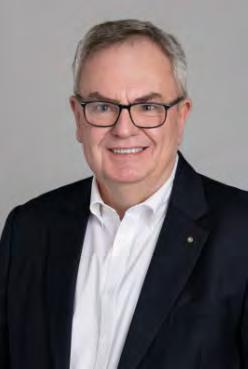
Rotary International President for 2023-24, Gordon McInally, plans to make mental health a focus, and emphasized continuity in advancing the goals of previous leaders, including empowering girls and eradicating polio.
He urges members to promote peace in troubled nations, help those affected by conflict, and maintain the momentum of initiatives begun by past leaders.
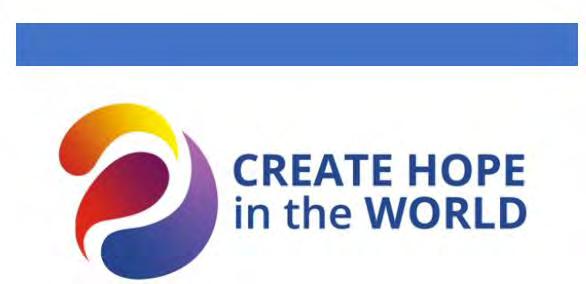

Click this link to hear RI President McInally’s speech at the 2023 Melbourne Convention.
1
 Editor Kitty Bucsko
Editor Kitty Bucsko
For the latest polio information, click here.
Click here to make yourself smile!
Click here to view the D6330 Facebook Page and keep up to date.

The change within
These are times that cry out for peace. The Middle East is in its most volatile condition in years. The war in Ukraine is the largest in Europe since World War II, and there are armed conflicts in Sudan and parts of Central Africa. Nearly every continent is experiencing a major armed conflict.
Rotary has a vital role to play in advancing the cause of peace – I often say Rotary needs to work toward peace as aggressivel as those who wish to wage war. It’s the spirit found in our vision statement: “Together, we see a world where people unite and take action to create lasting change – across the globe, in our communities, and in ourselves.”
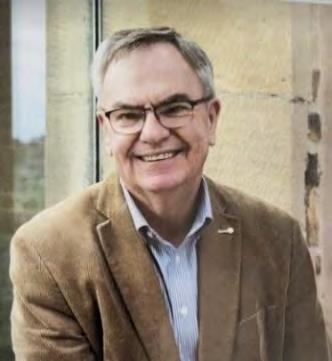
We must never lose track of that last call – that to bring about change in the world, we need to foster change within
It is up to us to mode peacebuioding behaviour among each other. We can o better than questioning the motives of one another and jumping to the harshest possible explanation. After hearing words that might strain or offend us, we have an opportunity to ask, with compassion and curiosity, the intent of those offending words. And then we have another opportunity to repair the breach.
If we wish to be a beacon to the worl, let us start by being so to one another Let’s help each other find greater understanding and productive alternatives to words that cause hurt and distrust. And let’s stick to our principles, but never doubt the sincerity of each other to end conflics, not inflame them.
I’m reminded of a speech that U.S. Senator Robert Kennedy made on 4 April 1968, that dreadful day when the Rev. Martin Luther King Jr. was assassinated. Kennedy was in Indianapolis speaking to an audience in a predominantly African Anerican neighbourhood where people had yet to learn that Dr. King had been killed.
He shared the terrible news. He honoured Dr. King for all he had done for the cause of justice and peace. An then he conneted with the fuming, grieving crowd by saying: “For those of you who are Black and are tempted to be filled with hatred and distrust at the injustice of such an act, against all white people, I can only say that I feel in my own heart the same kind of feeling. I had a member of my family killed.” It was the first time he had spoken publicly about President John F. Kennedy’s assassination. And while many American cities exploded in violence that night, Indianapolis did not.
It is in times of crisis and despair that we need empathy most of all. Empathy is the most powerful tool of peace, and it is vital if we are to take the first brave, humble steps to Create Hope in the World.
R. Gordon R. McInally President, Rotary International
For many, the Bahamas is a place to escape colder climes, relax on white-sand beaches, and snorkel in clear, turquoise waters. For me, it’s hom. I grew up sailing on these waters and to this day, anytime I can, I am out on the water with family and friends. It’s where my heart is.
The environmental threats my country is facing are real. Our coral reefs, vital for biodiversity, are in danger due to warming seas and pollution. Hurricanes and tropical storms seem to get more intense with each passing year Rising sea leels pose an existential threat to the Bahamas, eroding our beautiful coastlines as saltwater intrudes on our precious and limited freshwater resources.
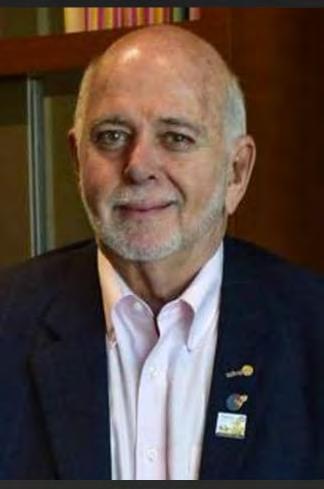
Late last year, I was fortunate to represent Rotary at COP28, the United Nations climate change convention in Dubai, United Arab Emirates. The consensus coming out of the meeting was that progress on addressing climate change has been too slow. Participants said the world needs to pick up the pace to reduce greenhouse gas emissions, help communities become more resilient to climate change, and better support countries that are most vulnerable to it.
Rotary can be part of the solution.
As you know, protecting the environment is one of Rotary’s areas of focus. Many clubs are active in their communities with projects such as beach and roadside cleanups. With The Rotary Foundation, you can increase your impact by pooling resources with clubs and disricts around the world. Foundation grants let you put the generous contributions of your fellow Rotary members to work to make the world better.
Imagine the possibilities. Perhaps Rotary districts in Canada and Australia could protect wetlands in New South Wales in Australia. Rotary leaders from Brazil, India, and Taiwan could lead grant projects to train farmers in the Indian state of Andhra Pradesh in sustainable agriculture. Rotary and Rotaract clubs from the Bahamas, South Africa, and New York could work with their districts to help my country restore its natural resources, one reef or mangrove at a time.
The problems our environment faces seem overwhelming until you realize that many are fixable. There are so many ways to help through Rotary. Even if we don’t lead a grant or volunteer on the project, we can all help protect the environment through our giving to the Foundation.
Rotary can’t save the planet all by itself. But as our progress in ending polio proves, Rotary’s impact is treat when we put our vision for a better world in motion, and just get started.
BARRY RASSIN Foundation Trustee Chair
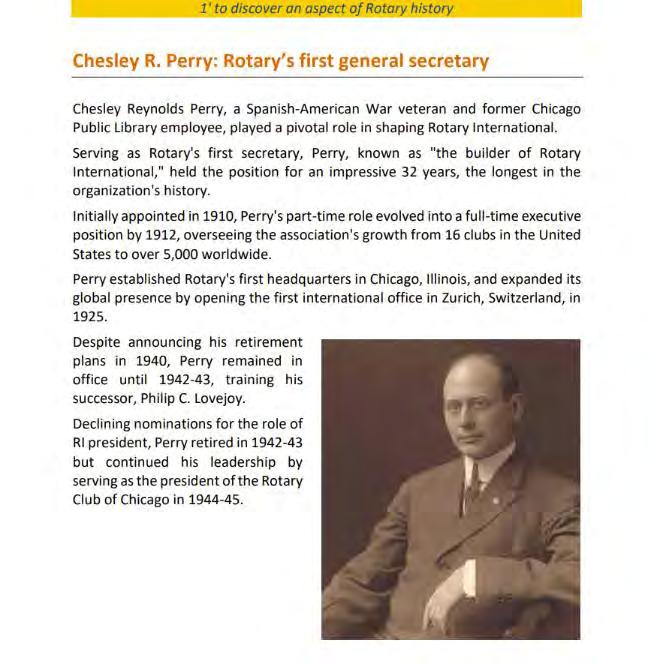
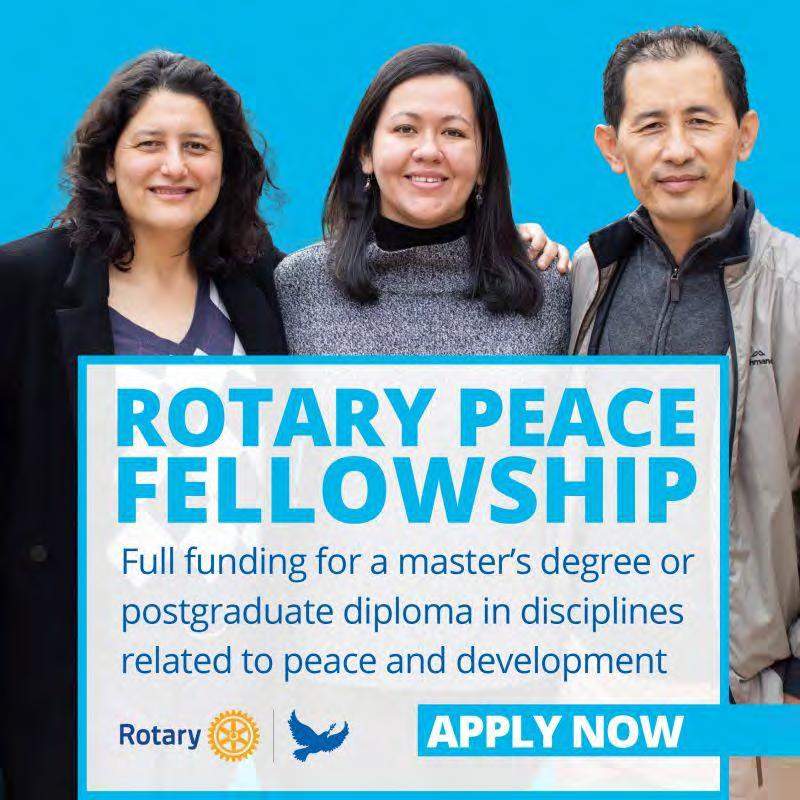
Rotary offers fully funded master’s degrees and professional development certificate programs for young professionals with three (3) to five (5) years of experience in peace and development.
They study at premier universities around the world, gaining knowledge, skills, and global networks to be effective peacebuilders.
Learn more about this unique opportunity and apply now or in future years.
Applications for the 2025 Rotary Peace Fellowships are open until 15 May.
You can help. You can help promote peace in the world by encouraging peace and development leaders in your community to apply for the Rotary Peace Fellowship.
Each year, Rotary awards up to 130 fully funded fellowships for peacebuilders from diverse backgrounds to study at one of our peace centers located at leading universities around the world.
50 and 80. This year, we’ll select 50 peace fellows to study in our master’s degree programs at six partner universities in Asia, Australia, Europe, and the United States and 80 fellows to earn postgraduate diplomas through our professional development certificate programs at Makerere University in Uganda and Bahçeşehir University in Turkey.
Rotary Peace Fellows use their training to amplify their work at the local, regional, or global level. Together, we can advance peace by encouraging our local peacebuilders to learn about Rotary and apply for this unique fellowship.
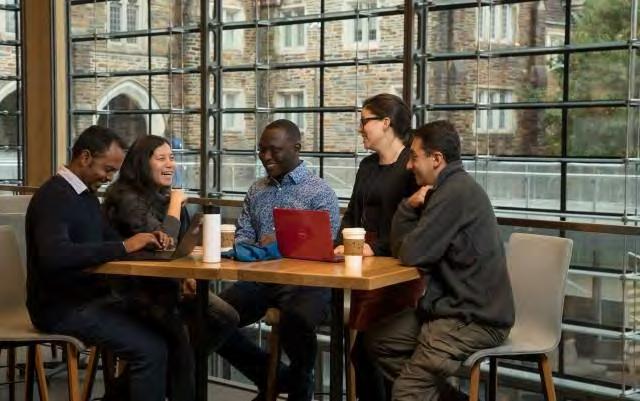
• Using our referral form so potential candidates can receive more information and apply
• Sharing a PowerPoint presentation about the fellowships with your club members and community
• Taking the All About Rotary Peace Fellowships course to learn about the centers and fellowship qualification criteria, eligibility restrictions, and application process
Candidates have until 15 May to submit applications to The Rotary Foundation.
Thanks to generous support from donors and the dedicated participation of Rotary members, the peace fellowship program has more than 1,700 alumni working to make positive change in more than 140 countries.
Many program alumni have founded their own organizations to address critical issues or serve as leaders in governments, nongovernmental organizations, educational and research institutions, media and the arts, and international organizations like the United Nations and the World Bank.
To learn more about how you can recruit the next generation of peace fellows, write to rotarypeacecenters@rotary.org.
Click here for the application.
Rotary Peace Fellowships may not be used for doctoral study. The following people are NOT eligible for the fellowship:
• Active Rotary members, or Rotaract members who are also Rotary members.
• Employees of a Rotary club or district, Rotary International, or other rotary entity.
• Spouses, lineal descendants (children or grandchildren by blood or legal adoption), spouses of lineal desendants, or ancestors (parents or grandparents by blood) of any living person in these categories.
• Former Rotary members and their relatives as described above(within 36 months of their resignation
• Rotaract club members who are not also Rotary club members are eligible to apply.
Candidates must have at least three years between the completion of their most recent academicdegree program (undergraduate or graduate degree) and their intended start date for the fellowship.
Candidates currently enrolled in an undergraduate or graduate program are NOT eligible to apply.
Rotary Peace Fellows who have completed the certificate program master’s program or a Global Grant Scholarship, must wait three years between the end date of that program and their intended start date for the fellowship.
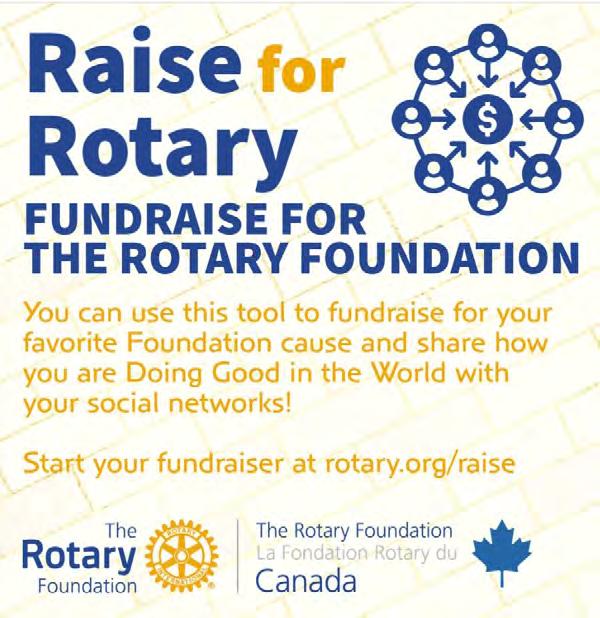
Raise for Rotary is a platform that allows individuals, clubs, and districts to create online fundraisers that benefit The Rotary Foundation. It is a great way to celebrate personal events and special occasions. Organizers can share their fundraisers through social media, email, and text, so family, friends, colleagues, and supporters can donate online.
The Raise for Rotary site will notify you immediately when a donation is made. You can send a note of thanks to the individual. The Foundation sends the official thank you donation notification and tax receipt.
The site can easily be updated with thank you notes, flyers, photos and videos, or just about any information you’d like to include. It’s so easy to keep the site updated with new information. Adding major gifts is a breeze.
External non-Rotary fundraising platforms charge fees and donors do not receive Paul Harris recognition points. By using our own platform, the funds you raise go directly toward Doing Good in the World.
For further information visit https://raise.rotary.org/ FAQs https://raise.rotary.org/faq #trfCanada #rotary #raiseforrotary
We are committed to supporting activities that strengthen the conservation and protection of natural resources, advance ecological sustainability, and foster harmony between communities and the environment.
In June of 2020, Rotary International announced a new area of focus. Protecting the Environment

In June 2020 The Rotary Foundation Trustees and the Rotary International Board of Directors voted unanimously to approve the Environment as the seventh Area of Focus. In January, 2021, they finalized the policy detailing the kinds of projects that will now become eligible for Global Grants. The Rotary Foundation began accepting grant proposals in July, 2021. As the Foundation prepares to support the new Area of Focus, you can read an overview here.
Eligible projects cover an array of fields:
• Protecting and restoring land, coastal, marine, and freshwater resources
• Enhancing the capacity of communities and local governments to support natural resource management and conservation
• Supporting agroecology and sustainable agriculture, fishing, and aquaculture practices to improve ecological health
• Addressing the causes of climate change and climate disruption and supporting solutions to reduce the emission of greenhouse gases
• Strengthening the resilience of ecosystems and communities affected by climate change and climate disruption
• Supporting education to promote behaviors that protect the environment
• Advocating for the sustainable consumption of products and the environmentally sound management of byproducts to build a more resource-efficient economy
• Addressing environmental justice issues and environmental public health concerns
The Foundation has published Global Grant Policy guidelines, for the Area of the Focus for the Environment, which you can download the new policy here.
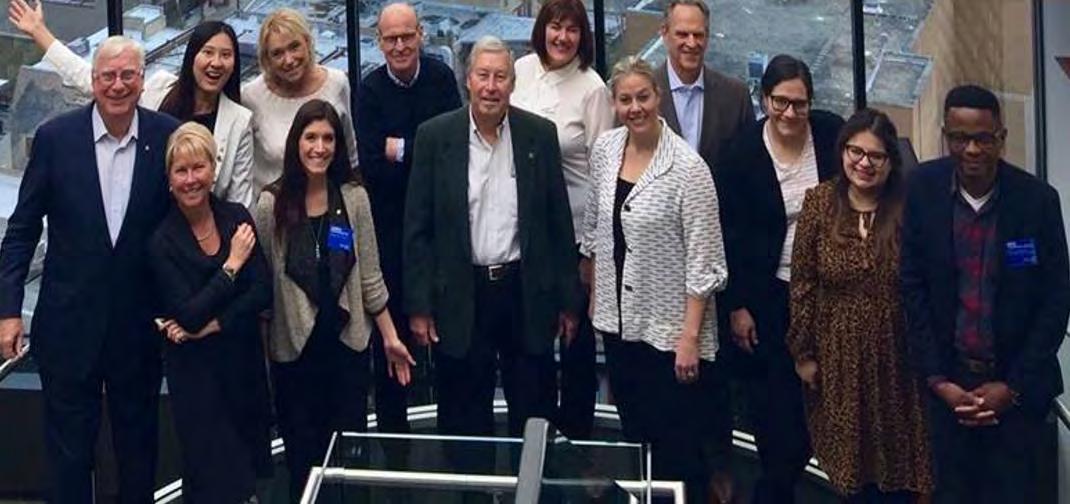
Rotary Past President Ian Riseley posted this picture on his Facebook page June 26, 2020, with this joyful news:
“The Trustees and Directors have unanimously accepted our recommendation to create a 7th Area of Focus of our Rotary Foundation, being the Environment. As Chair of the Task Force that put together and argued for this decision, I’m enormously proud today. This photo is of the four Trustees, one Director, and one Rotaractor who comprised the Task Force, plus the outstanding and dedicated staff who assisted us in arriving at our recommendation. Congratulations, team, we just made Rotary history!”
ESRAG supported the creation of a new and unique Area of Focus for the Environment, and our directors and members are thrilled by this decision.
ESRAG and its regional chapters are providing an array of online webinars to share lore from sustainability work all around the world. Many include talks from internationally renowned scientists, economists, entrepreneurs, and journalists. In addition, ESRAG’s task forces and teams are available for technical assistance to members of the Rotary family on projects such as renewable energy, carbon offsets, and Project Drawdown-informed solutions.
Click here to read more about how ESRAG and Rotary’s Environment Area of Focus is evolving.
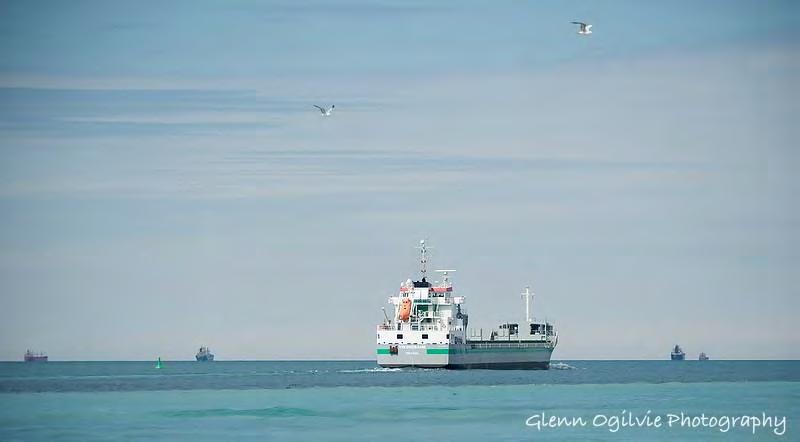
We live in the Great Lakes Basin, an ecological area that contains an astonishing 20% or more of all the surface fresh water on the planet. All that water allows many millions of people on both sides of the border to live and prosper and it supports millions of species of plants, fish, insects and animals.
When my wife and I left N. Ireland in 1972 to come to Sarnia we were apprehensive about coming to an area that had a reputation for poor air and water quality. We had heard reports a few years earlier that Lake Erie was a biological dead zone.
Since then, however, Lake Erie’s water quality has rebounded, and Sarnia’s air quality has improved along with an impressive reduction in pollution of the St. Clair River.
One of the greatest attractions for people moving to Sarnia is magnificent Lake Huron, the second largest of the Great Lakes. I have always been drawn to water. My father taught me to swim in the Irish Sea and swimming in the Lake brings me great joy during the summer.
As well as their natural beauty, Lake Huron and the St. Clair River provide the drinking water for a great many communities and they sustain many industries, including fishing and tourism.
We tend to take all that water for granted. Unlike Western Canada, which is experiencing a severe drought with no relief in sight, we often don’t think twice about watering our lawns and washing our vehicles. These activities could be banned in some areas in the future as they are in Australia.
Climate change is contributing to the West’s water woes as glaciers melt and rivers and groundwater levels recede. What about here? How is climate change impacting Lake Huron?
One obvious impact is the lack of winter ice. Winter storms now have free reign to batter the shoreline, speeding up shoreline erosion and driving up the costs to property owners and taxpayers to mitigate the destruction. What actions should we be considering?
Ice cover protects the lake and the shoreline. With ice cover the Sun’s radiant heat is reflected back into the atmosphere. The unprotected lake now is able to absorb the sun’s heat. Rising water temperatures lead to more evaporation and hence Winter and Spring have become wetter. Warmer water can also disrupt the biological balance of the lake. One example is the decline in whitefish populations as they require cold water and ice cover to successfully spawn.
Rising water temperatures also increase the risk of algal overgrowth which can make water undrinkable and lead to mass fish deaths. This problem has occurred in the recent past in Lake Erie and prompted the citizens of Toledo to pass the Lake Erie Bill of Rights which grants the lake legal rights and protections. In some other countries, rivers and lakes have been granted “legal personhood” allowing lawsuits to be brought against polluters on behalf of the river or lake.
We must become informed of the risks of climate change and pollution to Lake Huron. That is why Climate Action Sarnia Lambton has invited Pat Donnelly of the Lake Huron Coastal Centre to present “Tackling Climate Change on Lake Huron.” This presentation was held on Tuesday March 12 at 7:00 p m at the downtown Sarnia library theatre.
To read and learn more, click here.
Click here to view a short video of Sarnia-Lambton.
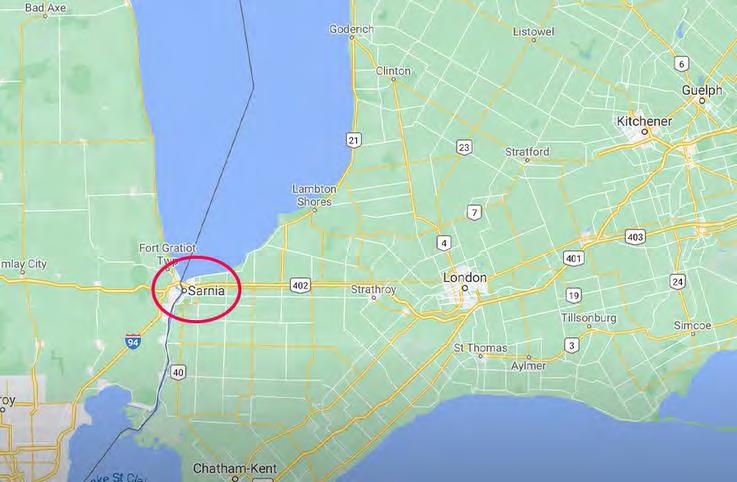
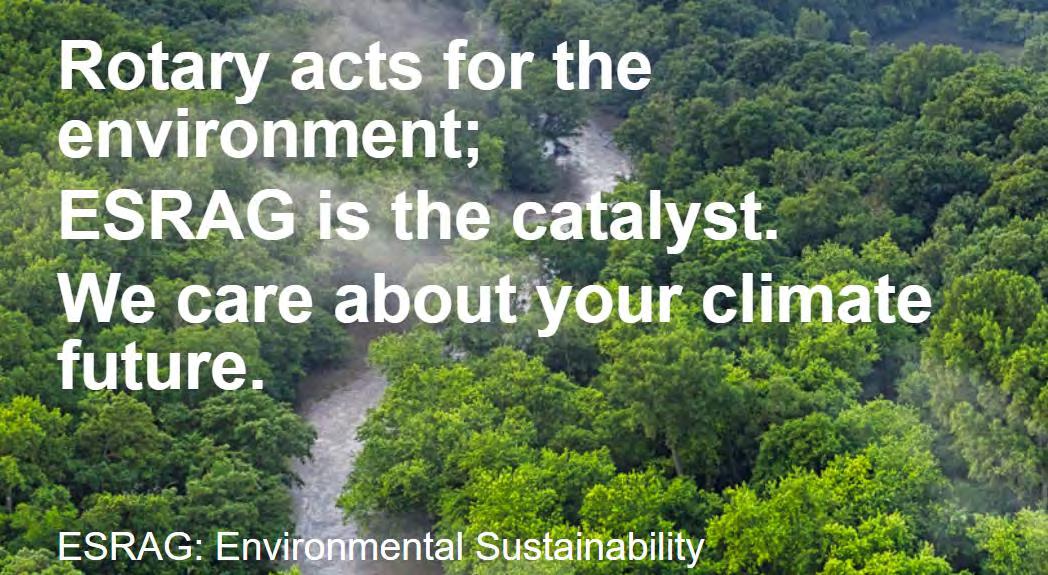


Rotary supports activities that strengthen the conservation and protection of natural resources, advance environmental sustainability, and foster harmony between people and the environment.
The Rotary Foundation enables Rotary members to protect, preserve, and conserve the environment by:
1. Protecting and restoring land, coastal, marine, and freshwater resources
a. Protecting and restoring terrestrial ecosystems and improving their resiliency through initiatives such as promoting reforestation, preventing deforestation, planting native vegetation, restoring habitats, and removing invasive plant and animal species
b. Preserving biodiversity by protecting and restoring habitats, conserving native species, removing invasive plant and animal species, conserving and protecting endangered species, and preventing poaching and the illegal wildlife trade
c. Supporting strategies and targeted initiatives to improve aquifer and groundwater recharging, water conservation, water quality, sanitation, and watershed management (adhering to the policy statements and guidelines for the water, sanitation, and hygiene area of focus)
d. Protecting and restoring coastal, marine, and freshwater ecosystems through initiatives such as habitat restoration, protecting and propagating native plant and animal species, removing invasive plant and animal species, addressing overfishing, pollution, coastal erosion and ocean acidification
2. Enhancing the capacity of communities and local governments to support natural resource management and conservation
a. Developing peacebuilding and conflict prevention initiatives related to the management and use of natural resources (adhering to the policy statements and guidelines for the peacebuilding and conflict prevention area of focus)
b. Mitigating human-wildlife conflict through ecologically sound and peaceful resolutions
c. Training and educating communities in conservation and resource management to preserve, protect, and sustainably use natural resources
3. Supporting agroecology and sustainable agriculture, fishing, and aquaculture practices to improve ecological health
a. Creating awareness of and supporting ecologically viable agriculture through activities such as regenerative agriculture, conservation agriculture, managed grazing, silvopasture, and tree intercropping
b. Supporting sustainable fisheries and ecologically sound aquaculture (adhering to the policy statements and guidelines for the community economic development area of focus)
c. Promoting the use of traditional and Indigenous knowledge in agricultural, land, ocean, and natural resource management practices
d. Improving food security through sustainable agricultural, aquacultural, and fishing methods, enhanced local food production and consumption, reduction of food waste, and equitable access to high-quality food
4. Addressing the causes of climate change and climate disruption and supporting solutions to reduce the emission of greenhouse gases
a. Providing access to locally sourced, renewable energy, including solar, methane-capture, and small-scale wind and hydropower systems, as part of holistic interventions to mitigate climate change and disruption
b. Providing clean-cooking technologies as part of a holistic approach to reduce or eliminate the burning of biomass and fossil fuels that results in deforestation, degraded land, or increased air pollution
c. Supporting the transition to sustainable, energy-efficient transportation modes through holistic urban and regional planning, education, or infrastructure changes
5. Strengthening the resilience of ecosystems and communities affected by climate change and climate disruption
a. Supporting adaptation and resiliency strategies for ecosystems and communities affected by climaterelated events, with an emphasis on vulnerable segments of the population
6. Supporting education to promote behaviors that protect the environment
a. Supporting environmental education programming in schools that aligns with local government curriculum (adhering to the policy statements and guidelines for the basic education and literacy area of focus)
b. Promoting community-based environmental education, environmental awareness and advocacy initiatives, and strategies to facilitate engagement and behavior change to support environmentally sustainable living, environmental protection, and sustainable development
7. Advocating for the sustainable consumption of products and the environmentally sound management of byproducts to build a more resource-efficient economy
a. Supporting community planning efforts to strengthen circular economies through composting, recycling, upcycling, and repurposing programs (for solid waste management projects, adhering to the policy statements and guidelines for the water, sanitation, and hygiene area of focus)
b. Promoting efficient food consumption by reducing food waste by local businesses and households
8. Addressing environmental justice issues and environmental public health concerns
a. Addressing adverse environmental public health impacts in communities through education, outreach, and advocacy
b. Eliminating and reducing exposure to environmental toxins in homes, schools, and communities within vulnerable and marginalized populations
c. Increasing equitable access to organic, healthy, and nutritious food for vulnerable and marginalized populations
Projects that do not seek to achieve a positive, measurable, and sustainable impact on the environment would not be eligible for global grant funding within the protecting the environment area of focus.
A successful global grant project requires a comprehensive and holistic approach to resolving specific issues that have a harmful effect on the environment.
The Rotary Foundation considers the following standalone activities to be outside the scope of the area of focus and not eligible for global grant funding:
1. Community beautification projects
2. Single-event training or education sessions
3. Single-event river, beach, or habitat clean-ups
4. Tree plantings that are not part of a larger ecological framework and strategy
5. Crematories as a stand-alone equipment and infrastructure purchase or installation without a holistic project design that aims to achieve specific and measurable positive environmental impacts
6. Nature therapy
7. Food distribution programs
8. Outdoor recreational activities
9. Projects that involve only building infrastructure, purchasing equipment, or training in how to use that equipment
Note: This list is not a complete list of ineligible activities.
For more information on project design requirements, refer to the Environment Guidelines for Global Grant Funding.

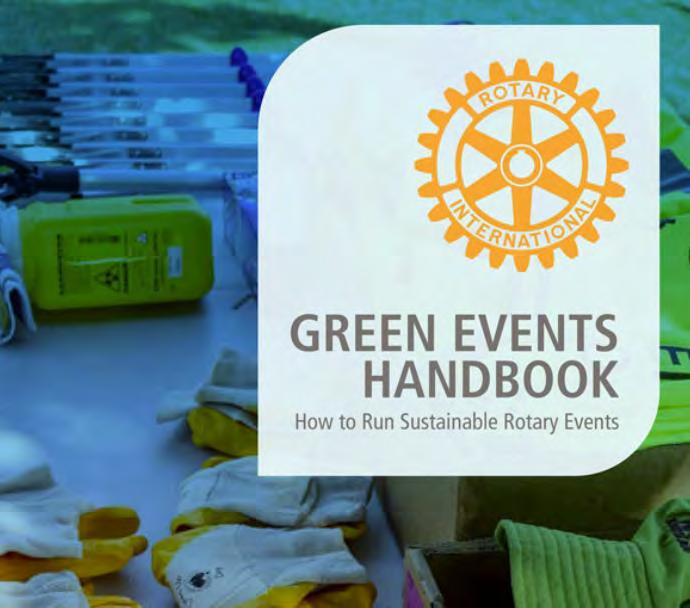
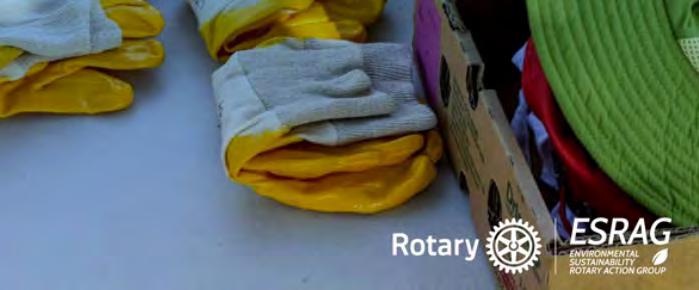
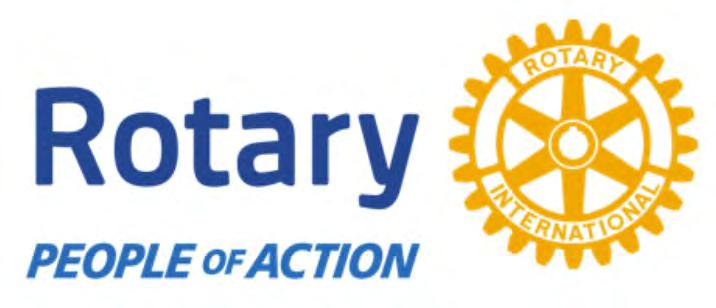
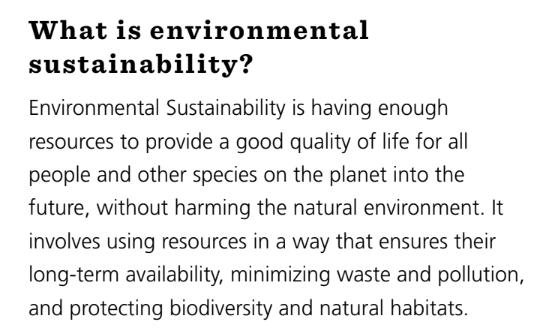


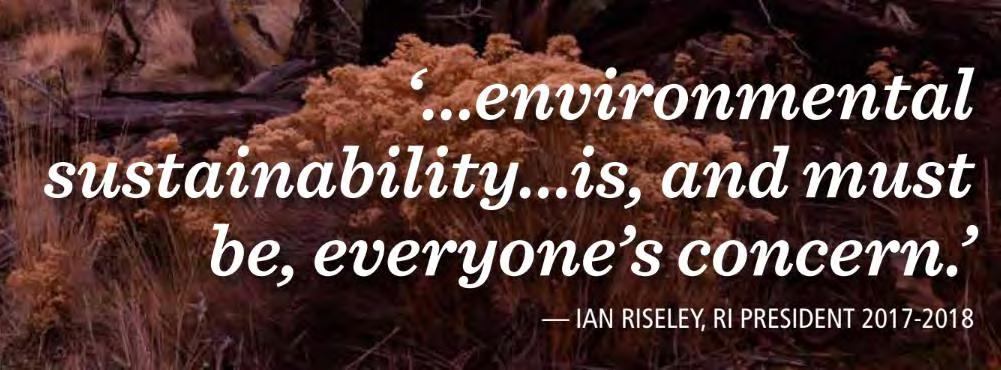
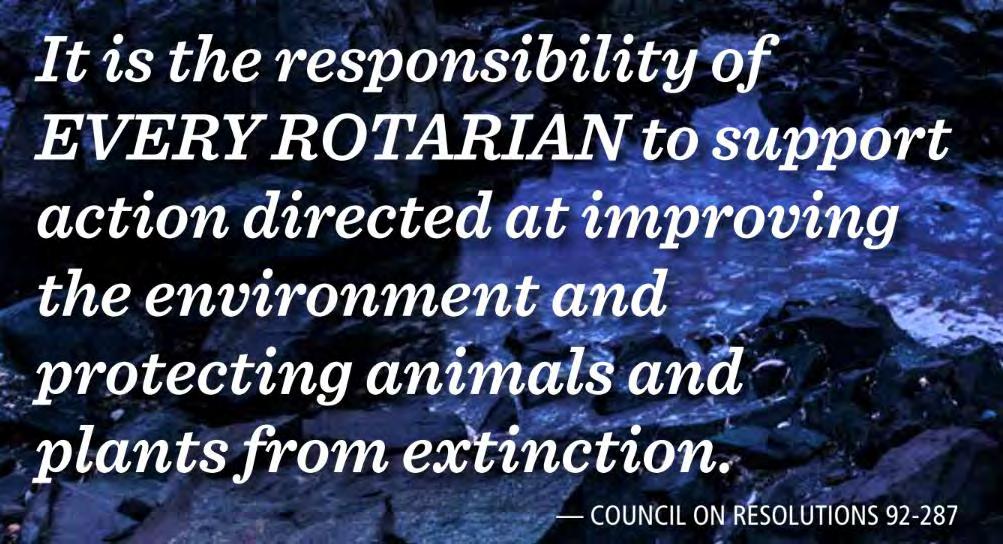

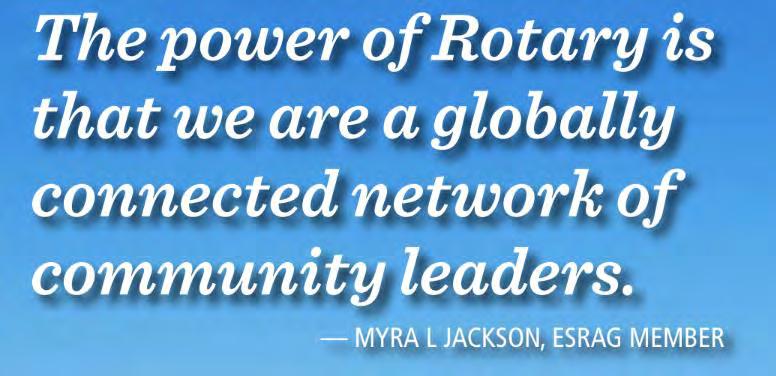
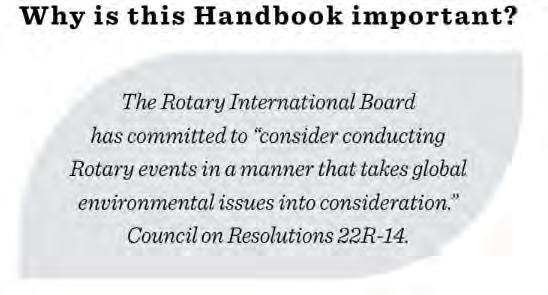
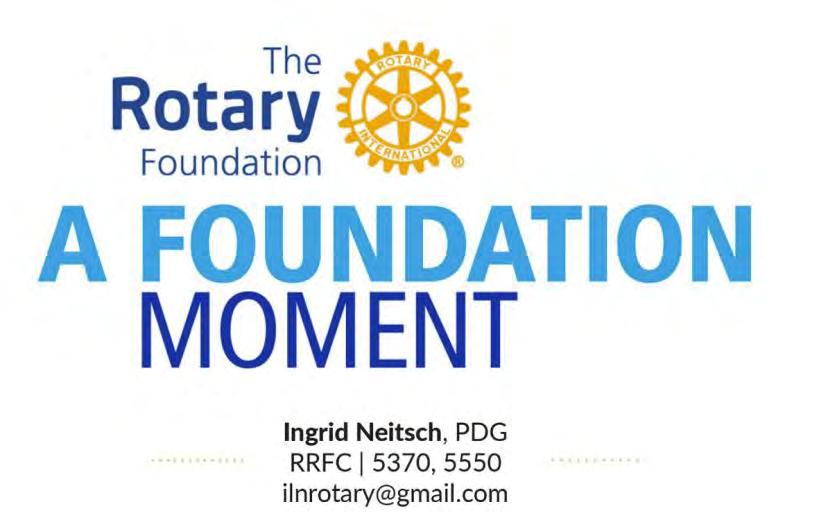
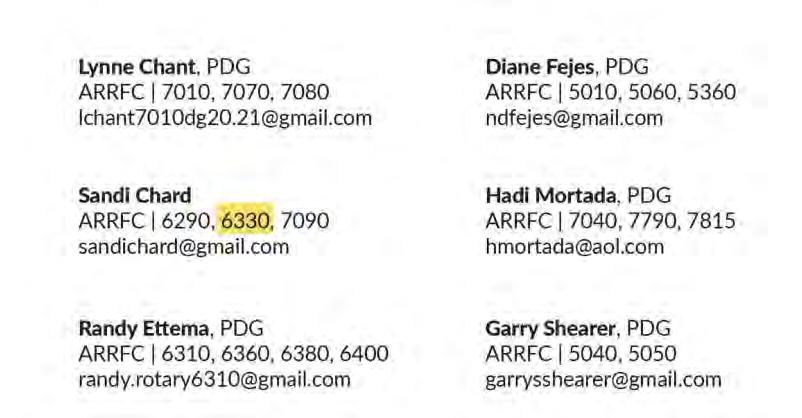
A Rotary club in the United States used a US$3,000 district grant to purchase food and personal care items for a local food pantry that saw a 50% increase in need. A Rotary club in India is using a district grant to provide hygiene kits and training to girls who might otherwise miss school when they are menstruating. The project aims to help 40,000 girls.
Clubs worldwide use district grants to support similar short-term projects in their communities.
Every club has the opportunity to create positive change in their community with grants from The Rotary Foundation, one project at a time.
What do you want to accomplish in your/our community?
One remarkable aspect of The Rotary Foundation is that opportunities for significant projects exist wherever there’s a need – in large countries and small ones, in metropolitan areas and rural ones.
Global grant projects are built on international partnerships, and those collaborations can take many forms. A district in Canada ay be the international sponsor, with a U.S. district as the host sponsor. A club in France could sponsor a global grant project in Germany. The need, not the location, determines the project.
Here’s another example: Rotary clubs in Honduras and the U.S. worked together on a global grant project to provide eye care to people in Honduras. Members from both clubs provided vision services through local clinics. They evaluated more than 1,200 people and gave prescription eyeglasses to 600. A local nongovernmental organization will continue to provide glasses and medications to people who need them.
What does this mean for the community? Better eyesight can lead to better educational or occupational opportunities, which can mean a better quality of life for people.
Clubs around the world use these grants from the Foundation to make long-term, sustainable change. Every club has the opportunity to do this, one project at a time.

The Calendar below shows Rotary’s 2023-24 monthly themes.
January

Summary of new polioviruses this week, cases and positive environmental isolates:
• Pakistan: two WPV1 cases and 21 positive environmental samples
• Burkina Faso: one cVDPV2-positive environmental sample
• DR Congo: one cVDPV2-positive environmental sample
• Guinea: one cVDPV2 case and 11 cVDPV2-positive environmental samples
• Mali: one cVDPV2 case
• Mauritania: one cVDPV2-positive environmental sample
• Nigeria: three cVDPV2-positive environmental samples
• Somalia: one cVDPV2 case
• Yemen: two cVDPV2 cases
• Zimbabwe: four cVDPV2-positive environmental samples

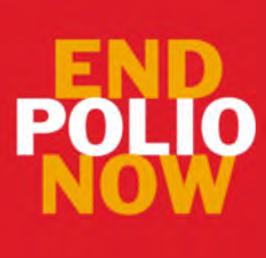
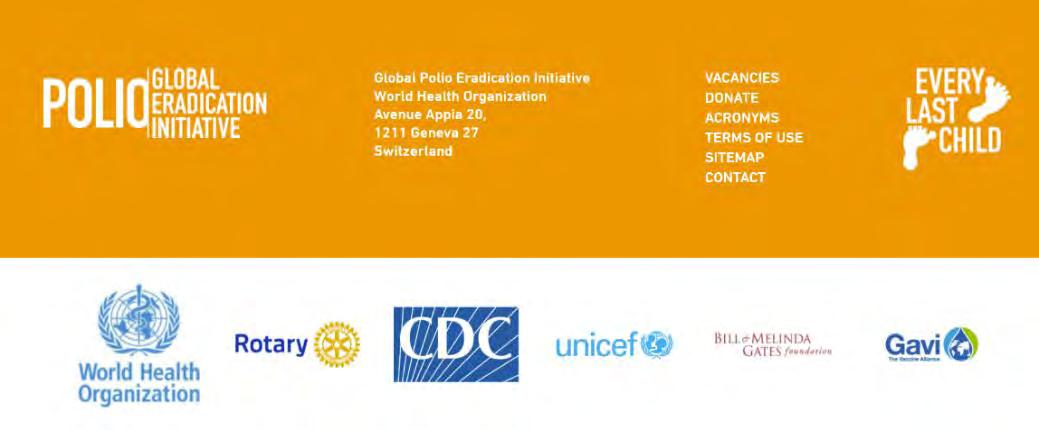
For more information, click here - http://polioeradication.org/polio-today/polio-now/this-week/
Click here

SUDAN - Sudan’s Federal Ministry of Health (FMOH) will launch a polio vaccination campaign in April 2024 in response to a new emergence of variant poliovirus type 2 reported in January 2024.
It was detected in six wastewater samples collected from September 2023 to January 2024 in the Port Sudan locality, Red Sea State.
Read more
In Pakistan - Two Wild Poliovirus type 1 (WPV1) cases were reported from Dera Bugti and Chaman districts of Balochistan, Pakistan. The cases had onset of paralysis on 22 February 2024 and 29 February 2024. The virus isolated from the cases are linked to the YB3A cluster that was detected in environmental samples in Quetta and Chaman in 2023. Outbreak response to the detected cases in Balochistan and recent environmental detections from other districts are ongoing with a polio vaccination campaign taking place from 25-28 March in polio-affected districts in Balochistan, Sindh and Punjab. Eradication efforts, particularly surveillance in the endemic areas where no cases linked to YB3C cluster have been reported since September 2023, continue to be intensified, particularly as the country is currently in the ‘low transmission season’ for poliovirus.

Polio survivor and eradication advocate, Paul Alexander has passed away at the age of 78, after living in an iron lung for over 70 years. Paul contracted polio in 1952 when he was six and the disease left him unable to breathe independently leading to his placement in an iron lung.
Watch this short video
Despite his physical constraints, Paul obtained a law degree, wrote a memoir, and was a strong advocate for polio eradication.
Click here to read and learn more.
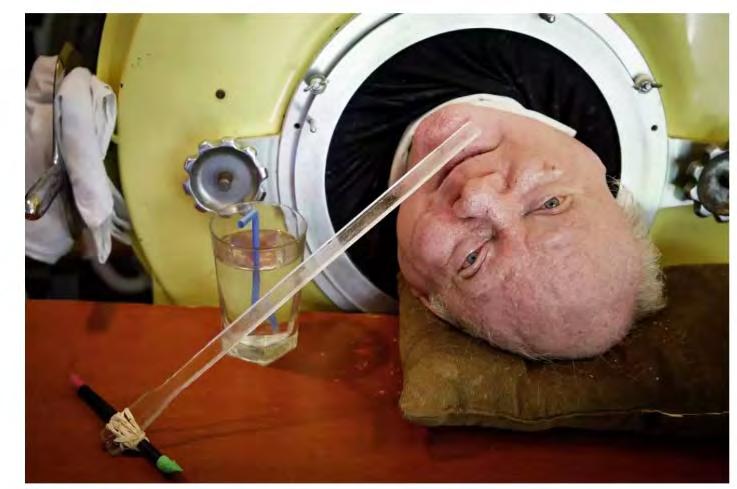
Click here to view a short video – Paul’s brother is “honoured” to be his brother.
Click here for another short review of Paul’s life.
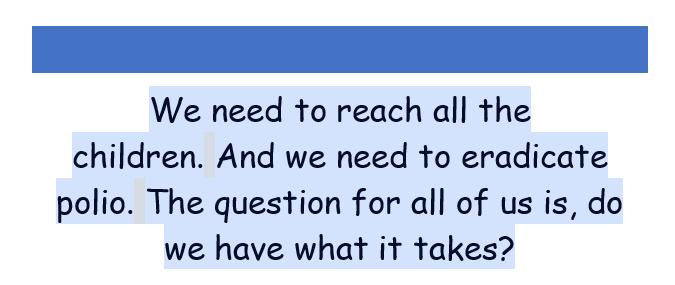
Source – Gates Notes
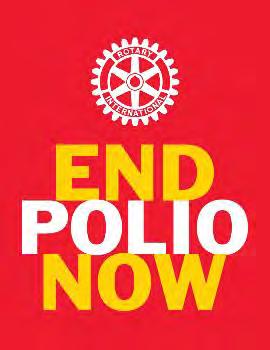
Our District 5370 proudly joins The Rotary Foundation and fellow districts across the world to announce the new Polio Plus Society and invite all our members to join.
This simple act of generosity by our fellow Rotarians around the world will bring the life saving polio immunization to countless children until the day that the world has been rid of the virus. We are truly This Close, and we need your help to complete the job.
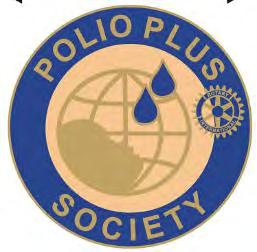
The Polio Plus Society is an organization of like-minded individuals who have committed to contribute $100 USD or more each and every year to Polio Plus until the world has been declared free of the Wild Polio Virus. This is our commitment to fulfill the promise Rotary made in 1985 to immunize all the children of the world.
It’s easy and rewarding to become a member. Download, complete, and submit the Polio Plus Society Pledge Form by email to the PolioPlus Chair at dgreenway@telus.net Complete your contribution commitment in one of these ways:
Contribute with your credit card online at: https://www.endpolio.org/donate
- OR -
Rotary Direct. Enroll in Rotary’s recurring giving program, Rotary Direct, which makes giving easy, fast, and secure. You can schedule a monthly, quarterly, or annual donation that empowers Rotarians to change lives in communities around the world. https://my.rotary.org/en/rotary-direct
Email the completed form to Donna Greenway at dgreenway@telus.net or mail to 10211 102 Avenue Fort St. John, BC V1J 2E4.
YES, all donations will be matched 2 to 1 by the Bill and Melinda Gates Foundation.
Anyone can join the society, not only Rotarians. Everyone will be recognized with a special pin and a Society Certificate, and a great feeling in their heart.
With your help, we will reach every last child and achieve a polio free world. Please reach out to Donna and sign up today
Yours in Rotary
Donna Greenway District PolioPlus Chair
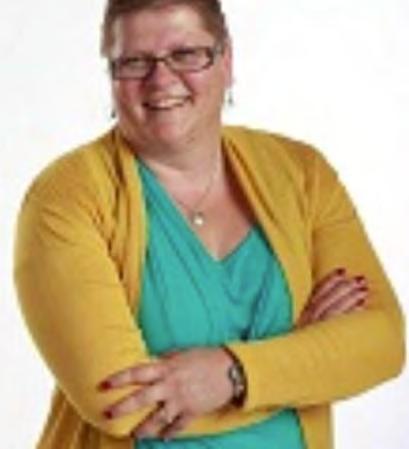

Your donation changes lives! and this information bears repeating…
There are numerous ways to support The Rotary Foundation.
Every amount contributed to The Rotary Foundation is spent in support of humanitarian, educational, and cultural programs, and their operations. Clubs and districts apply for and receive Foundation grants to carry out worthy projects worldwide.
Here are a few of the ways that your contribution can make a difference:
• $100 can buy textbooks for one elementary school in Zambia
• $5,000 can buy vaccine to immunize 10,000 children against polio
• $24,000 can buy an academic-year Rotary Foundation Ambassadorial Scholarship
• $100,000 can buy funding for two to complete a two-year graduate program for a Rotary World Peace Fellow
When you donate online, you get to choose where your donations go. Support thousands of service projects our people of action are tackling around the world. Outright gifts can be made easily with The Rotary Foundation online contribution form.
This method expedites processing your tax receipt and Paul Harris Fellow recognition points. For online donations please visit https://www.rotary.org/en/donate.
• Memorial or Tribute Donations: A gift to The Rotary Foundation is a meaningful way to honour a loved one.
• Recurring Donations: Rotary Direct allows you to help year-round by automatically giving each month, quarter, or year.

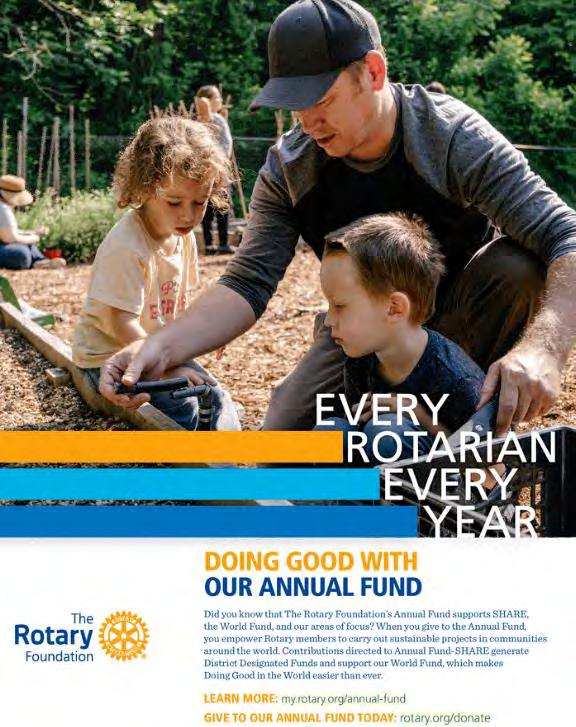

Not to be confused with a Paul Harris Fellow (which means a life-time gift of $1000 to The Rotary Foundation's annual fund), the Paul Harris Society is the name given to those Rotarians who pledge a $1000 gift annually –every year
You may know these committed individuals they wear a "flag" below their Rotary pin that reads "PHS."
One easy way to give at the $1000 level is through Rotary Direct sign up and an amount of money you designate is automatically deducted from your account each month. Learn more at www.rotary.org
Members of the Paul Harris Society know that the need never ends and neither should the giving. What your giving supports
Paul Harris Society gifts have helped provide:
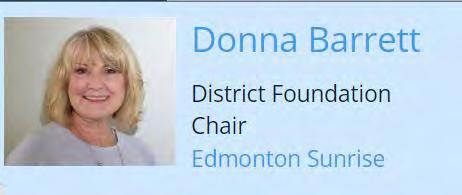
• Vocational training for teachers establishing an early childhood education center in South Africa
• Water filters, toilets, and hygiene training to prevent fluorosis, diarrhea, and other diseases in India
• A scholarship for a medical professional in Italy to research treatments that minimize mortality rates among premature babies
• Peace-building seminars for 200 teachers and 1,300 students in Uganda
• Treated mosquito nets and medical services that prevent malaria in Mali
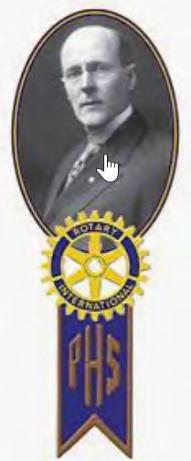


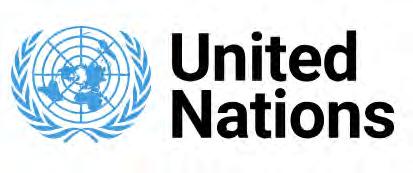
World Autism Awareness Day
Tuesday, April 2
International Day of Conscience
Friday, April 5
World Health Day
Sunday, April 7
International Mother Earth Day
Monday, April 22
World Immunization Week
Wednesday, 24 April – Tuesday, 30 April
International Day of Multilateralism and Diplomacy for Peace
Wednesday, April 24
International Girls in ICT Day (Information, Communication, and Technology)
Thursday, April 25
Click here to view a short video.
World Malaria Day
Thursday, April 25
World Day for Safety and Health at Work
Sunday, April 28
International Jazz Day
Monday, April 30
Click here for a sample of fascinating rhythm.

Rotarian Sir Nicholas Winton saved hundreds of children at risk of being killed by the Nazis in the lead up to World War II
By Dave King“If something is not impossible, there must be a way to do it,” Rotarian Sir Nicholas Winton once said. Known to his friends as “Nicky,” the British stockbroker rescued hundreds of predominantly Jewish children from the Holocaust in the months leading up to World War II. Winton, who died in 2015 at the age of 106, is now the subject of a new film, “One Life,” starring Sir Anthony Hopkins and Helena Bonham Carter. It was released in January 2024 in the United Kingdom.
The film tells the true story of how Winton rescued 669 children from the Nazi advance and found homes for them in the United Kingdom. During a visit to Prague, Czechoslovakia, in December 1938, Winton saw numerous families who had fled the spread of Nazism in Germany and Austria. The refugees were living in desperate conditions, with little or no shelter or food, as the German invasion of Czechoslovakia loomed. Winton immediately realized it was a race against time: How many children could he rescue before the borders closed?
Producers Emile Sherman and Iain Canning first contemplated telling Winton’s story when they co-founded SeeSaw Films more than 15 years ago.
“We were very lucky to have had the opportunity to meet Nicholas Winton before he passed away,” Canning says. “He was the most modest, generous human being. [He] felt the film should not glorify him but celebrate how the most ordinary of people can make a huge impact.”
Click here to read the full article.
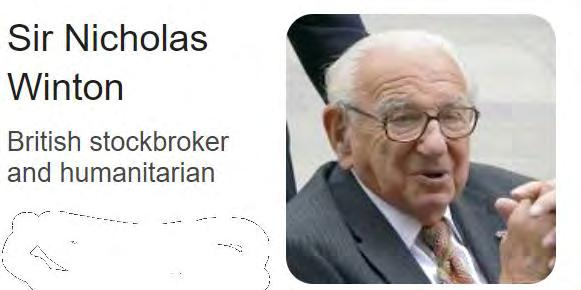
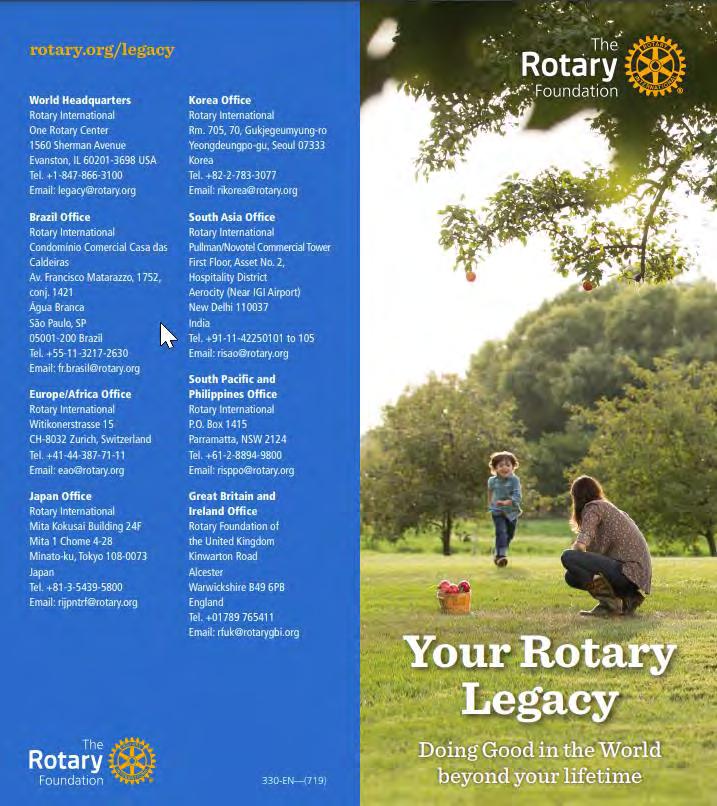
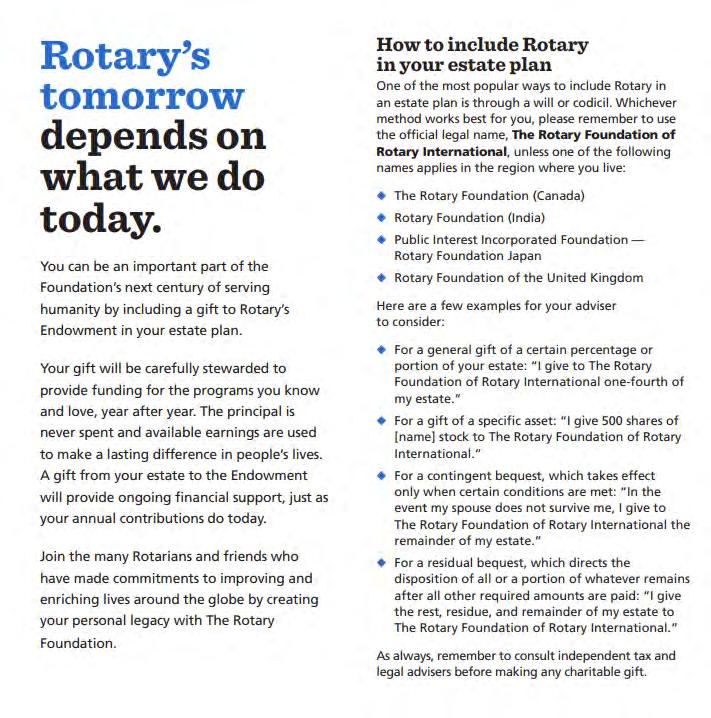
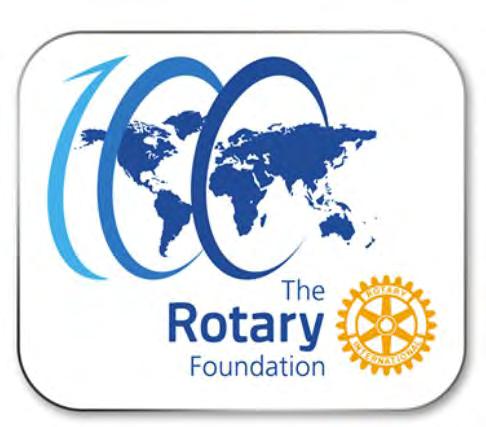
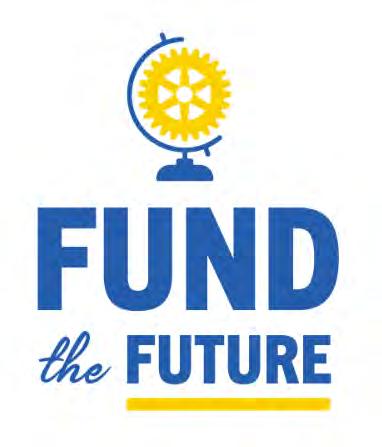
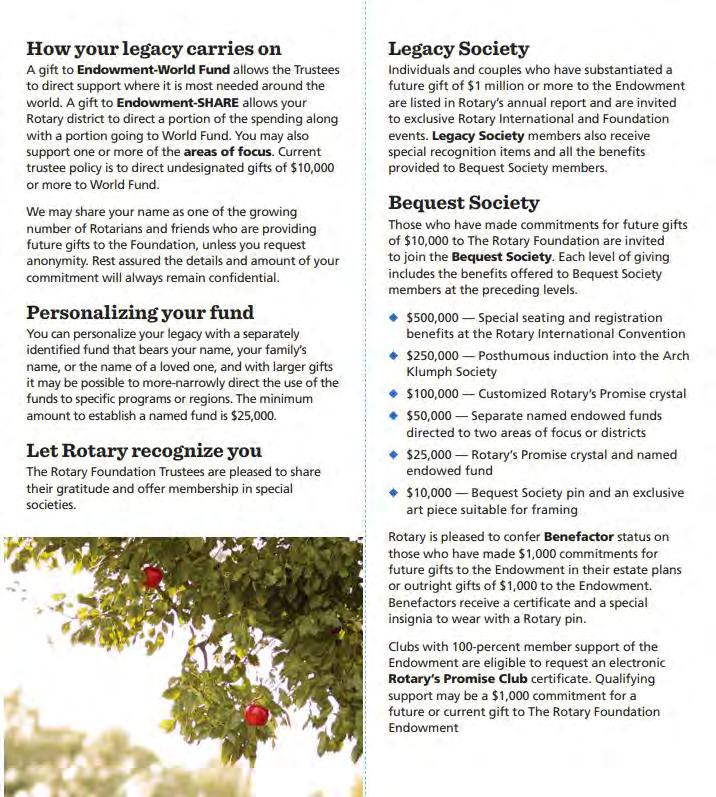
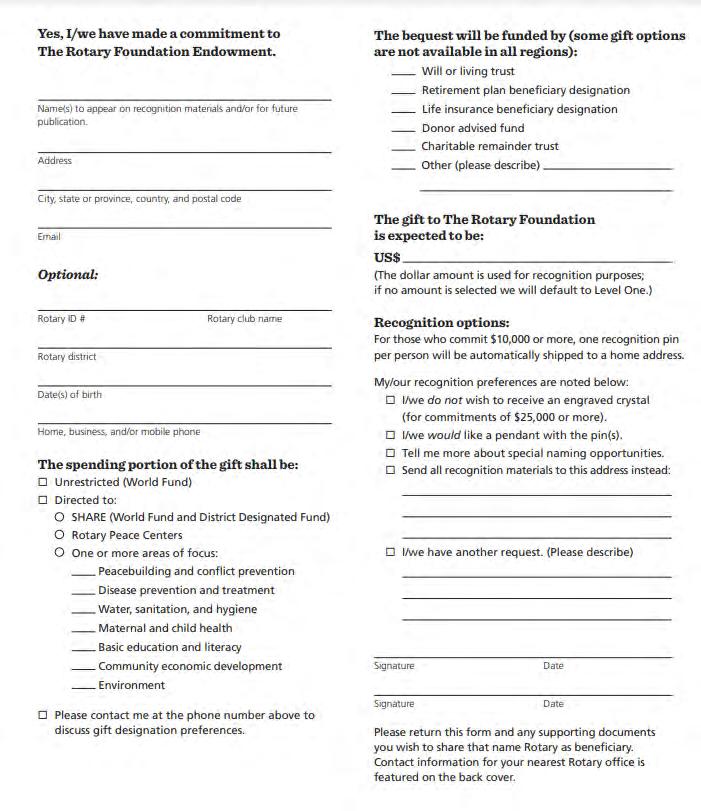
Click here to read the Endowment Fund Financial report for 2022-23.
Club Service, Community Service, International Service, Vocational Service, New Generations (Youth) Service
A list of Rotary's 7 areas of focus and a brief description of each:
1. Peacebuilding and conflict prevention: Rotary aims to address the root causes of conflict and promote sustainable peace through initiatives that support education and training, promote community dialogue, and build networks of peacebuilders.
2. Disease prevention and treatment: Rotary works to improve health outcomes and reduce the spread of disease through initiatives that promote immunization, provide access to clean water and sanitation, and support medical research.
3. Water and sanitation: Rotary aims to improve access to clean water and sanitation in underserved communities, through initiatives that promote infrastructure development, support education and training, and raise awareness about the importance of clean water and sanitation.
4. Maternal and child health: Rotary works to improve maternal and child health outcomes by supporting initiatives that provide access to prenatal and postnatal care, promote vaccination, and support nutrition and education programs for mothers and children.
5. Basic education and literacy: Rotary aims to improve access to education and literacy for children and adults, through initiatives that support teacher training, provide educational resources and materials, and promote community-based programs that increase literacy rates.
6. Economic and community development: Rotary works to support economic and community development initiatives that promote job creation, increase access to financial services, and support small business development and entrepreneurship.
7. Supporting the environment: Rotary aims to support environmental sustainability initiatives, through programs that promote conservation, improve access to clean energy, and support the development of sustainable agriculture and other eco-friendly practices.
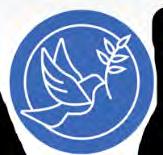

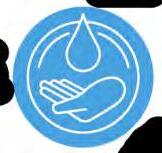

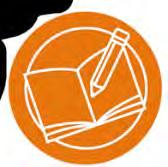




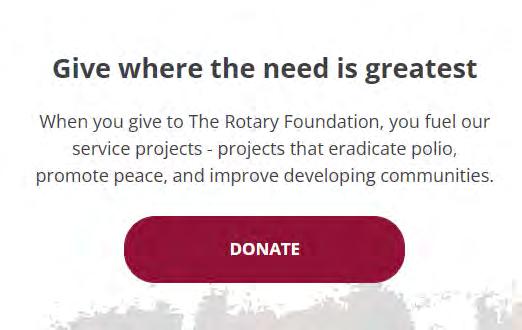
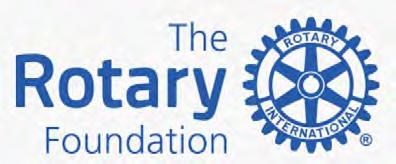

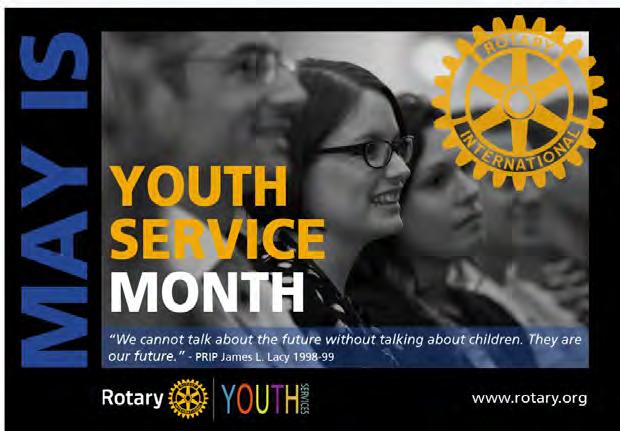
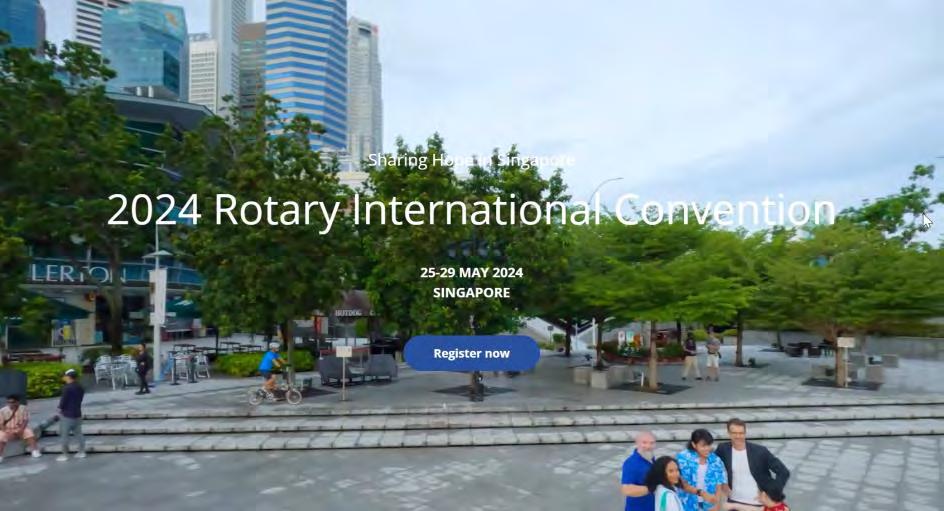
Click here to learn more about the Convention.
Click here to view a welcome message from RI President McInally.
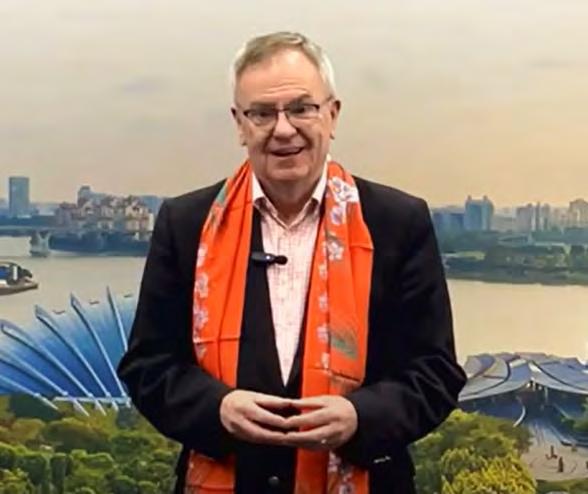

Click the graphic above to register and click Register now when the site opens.
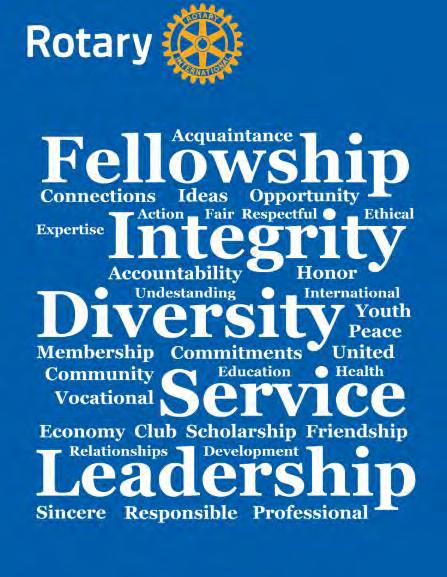
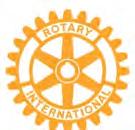
Rotary International is an international service organization whose stated purpose is to bring business and professional leaders together to provide humanitarian service and to advance goodwill and peace around the world. It is a non-political and non-religious organization.
Rotarians can get involved in various types of service –
Club Service, Community Service, International Service, Vocational Service, New Generations Service
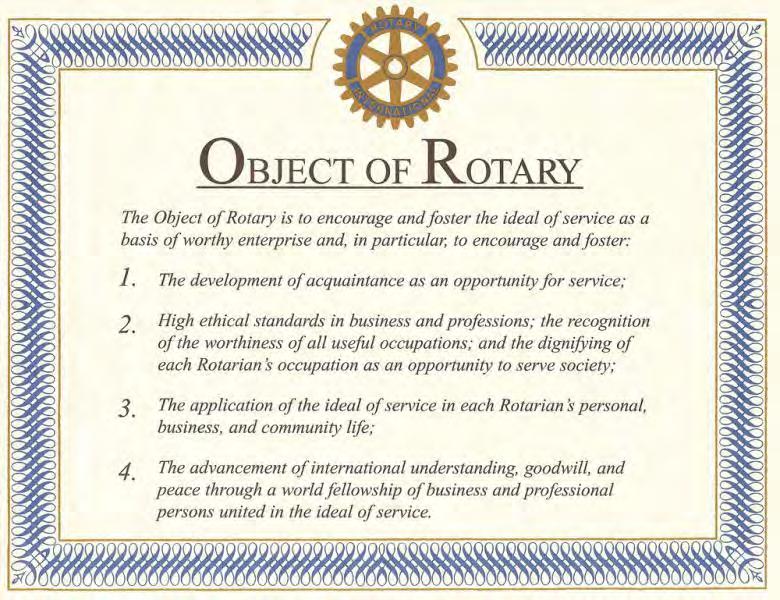

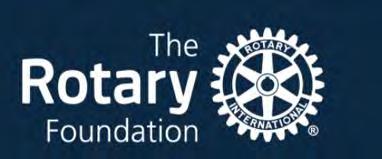

Click here for a short video
Our Every Rotarian, Every Year (EREY) initiative encourages all Rotary club members to contribute something each year to The Rotary Foundation. We hope that you can consider at least $100 USD every year to help us reach our goal to support the Rotary Foundation financially each year.

Sustaining member. One who contributes $100 USD every year is a Sustaining Member. With EREY, we encourage you to contribute an amount you can afford every year.

What is a Rotary Foundation Bequest Society Member?
Those who have made commitments for future gifts of $10,000 or more to The Rotary Foundation are invited to join the Bequest Society.
Donors may elect to receive various benefits and recognition pieces commemorating their commitment at each new recognition level, including pins, crystals, named funds, and special seating at the Rotary International Convention.
A bequest gift of at least $10,000 in your name to The Rotary Foundation creates a legacy of your generosity and compassion as you are helping many people live better lives around the world.
Today there are over 18,000 Bequest Society Members worldwide.
Will you join them by leaving a gift to Rotary in your estate? Contact the Rotary Foundation’s Planned Giving team
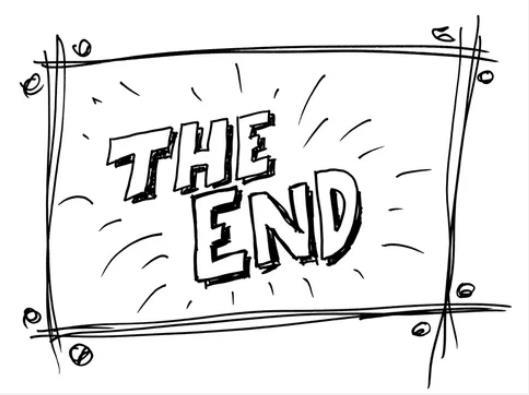
But no -
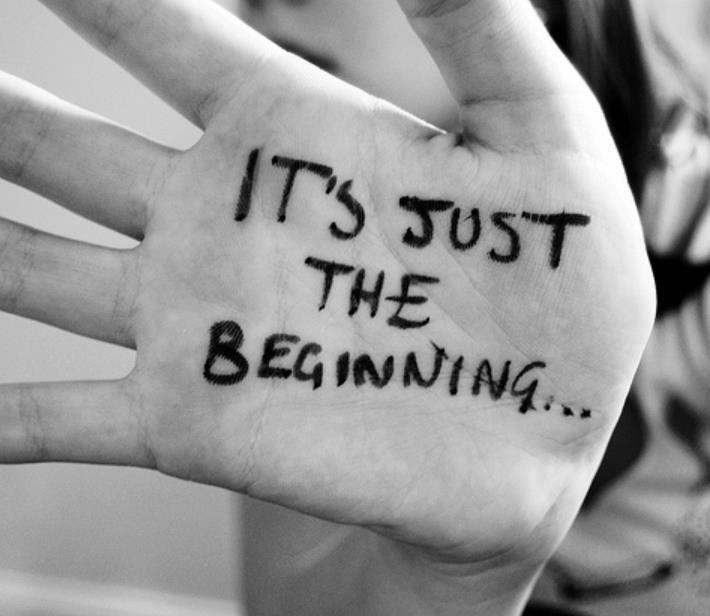
When tomorrow comes, this day will be gone forever. In its place is something that you have left behind. Let it be something good.3